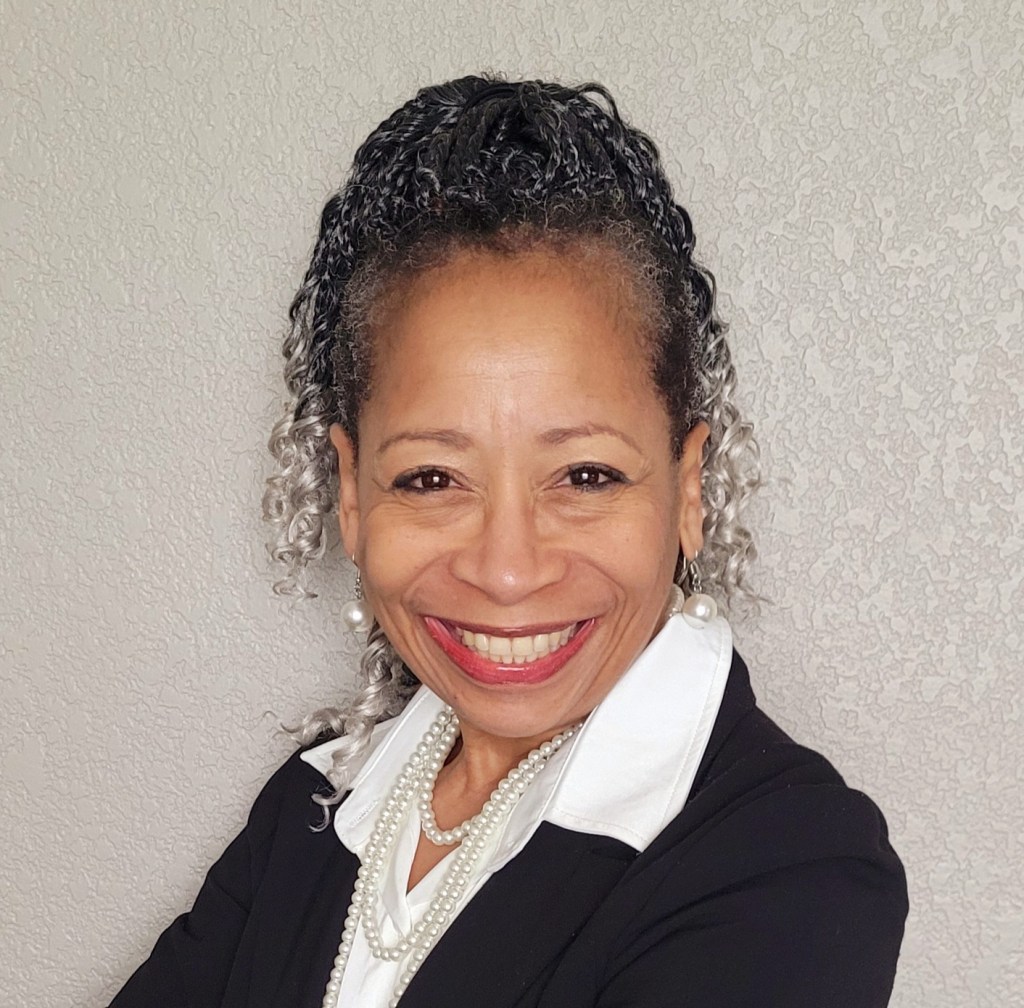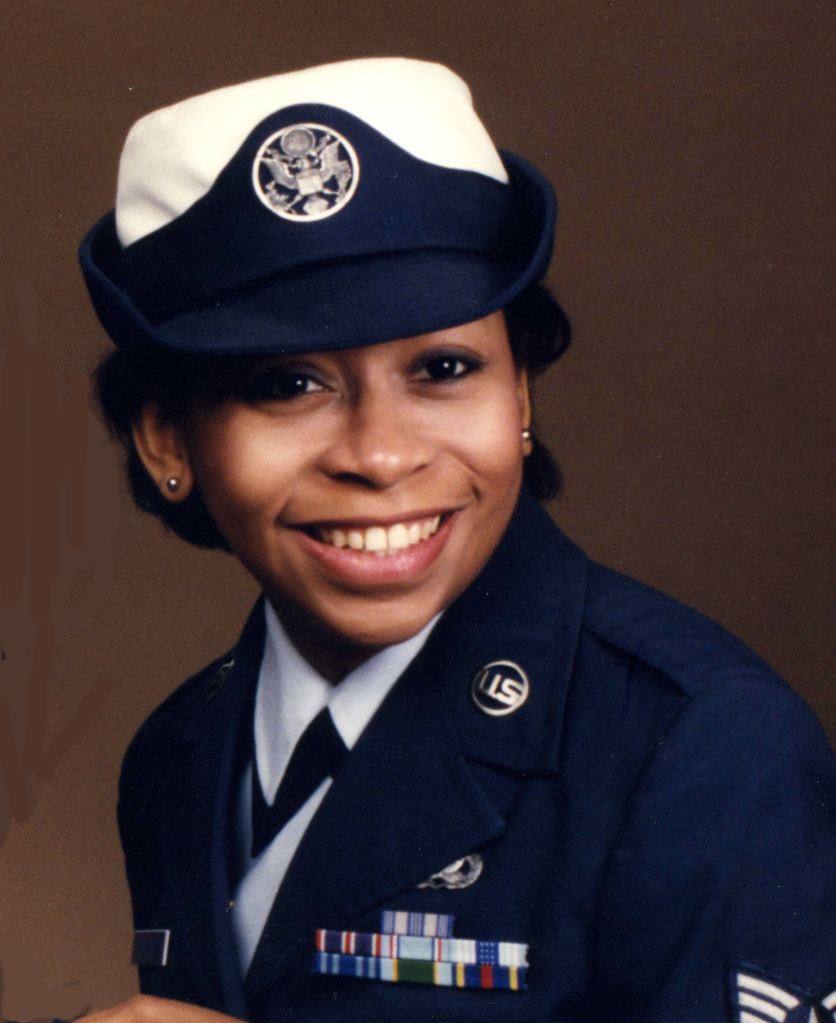Thanks for Your Service

Our United States Military protects our country, our freedoms and our rights. Within this work are many women who stand beside their fellow men every day making sacrifices to be a part of the bigger picture of getting an education, travel and a future career.
I spoke with Sharon Clermont about her time in the Air Force and this is what she had to say.
Sharon Clermont’s inspiration for joining the military was “I Dream of Jeannie”, lol. Maybe subconsciously anyway. In high school, she had a desire to join a branch of the service as an officer. She had received a Congressional Nomination to apply to the Air Force Academy, West Point, and the Naval Academy. When Clermont got the Naval Academy’s call and not the Air Force Academy, she passed on the opportunity without regret. After going to college for a couple of years, taking gen ed courses, the desire to join was reignited. A friend was going into the Air Force, and was talking to a recruiter. Clermont went on one of her friend’s trips to the recruiter. Clermont was hooked by a “Donnie Simpson” look-alike recruiter. However, what sold her were the benefits for joining: an education, the job opportunities, and the travel potential. She signed on the dotted line, even though her friend did not. She said it was “the best decision she has made to date.” Even though, there have been others since then. Some of the highlights of her time were: being stationed in South Korea; working on the flightline with RF-4s taking off to do Sorties; being in the Cafeteria at Austin Community College in between evening classes when Desert Storm started, and watching the SCUD missiles on CNN, and getting married and having two beautiful girls.
Clermont’s career in the Air Force was in the electronics field, and the various electronic careers were dominated by men. As a black woman, “I stood out with no place to hide often.” She was in during a time where I never had to say, “it’s because I’m black” or “it’s because I am a woman”. Her mouth got her in trouble and if that was because she is a black woman, well. Seriously, Clermont always was aware that she was the “only one” in the room for either/or being both black and a woman. She thinks for those reasons she worked harder than some other folks. And she stayed somewhat quiet, because she didn’t want the men to think she was less than them if she said something incorrectly. Clermont remembers one specific instance where they had a service call about equipment not working and a black male staff sergeant and herself went out to work the equipment. As they were troubleshooting, she diagnosed the issue. And she remembered him saying “You’re smarter than you let people know; you know a lot”. And her response was “I never said I didn’t know anything; I just have never been asked.” His comment resonated with her and it appeared to be the perception by the shop she worked in.
When Clermont got out of the military, it was after Desert Shield/Desert Storm had ended, the first war since the Vietnam War. America was more supportive of our veterans, instead of spitting on or turning their backs on them. Clermont chose to leave the military during the downsizing of the troops and the mass base closures that were occurring under President Reagan’s administration. The job market was pretty open and she was a stay-at-home mom for the first 6 months while her then husband was on the road for extended periods working during that time. Being a stay-at-home mom was not her strong suit, especially the unemployed part. There weren’t long term transition programs or organizations set up to assist them. A veteran had about 6-months support and after that we were pretty much on our own to find employment, etc. She wasn’t confident of how to pursue the benefits she was eligible for, and the VA was short staff, so answers were hard to get. To say she was prepared; not so much, but she didn’t let that stop her progress to being a civilian and working in corporate America.

When it comes to specific resources and programs for Women Veterans, Clermont says it was long ago. She just remembers the Veterans Administration being the go-to. At the time she lived in Illinois, and the Illinois Department of Veterans Affair had a tuition program that paid tuition at Illinois state-supported colleges for returning Illinois veterans. When she went in, the GI Bill was being revamped and she was under a program called VEAP and got little to no support from the US Government to continue her education. She was thankful for the state support. Also, job applications did ask for your military status, and preferential treatment was supposed to be given to vets.
For Clermont, being in the military had an immense positive impact on her life. Her dad didn’t want her to go in, but he told her how proud he was of her for joining and serving. Because of the culture of the Air Force during the time she was in, Clermont gained a sense of “I can do all things.” When she walks into a room, she may still be the only black woman in some rooms, but “I am able to be confident in my skin because of the experiences I had while serving.”
As far initiatives or organizations around Black Female Veterans, Clermont is a member of Zeta Phi Beta Sorority, incorporated an organization who has an International Military Advisory Board (MAB) and a national partner with Women Veterans ROCK (https://womenvetsrock.org/about/)
Clermont feels the time she was in the military and when she transitioned to civilian life was much different than it is or has been for women in the past 10-15 years. Clermont suggests to the black women veterans navigating toward their transitions to start planning as far in advance as they can, it is never too early. Start planting the seeds in their networks, in their churches of what they are looking to do and make those contacts now. Get engaged with their communities and volunteer to get their names out there. Every touchpoint is an opportunity to find out more about themselves and to allow people to bring out the non-military women that they are out front. Clermont highly recommends finding a mentor or a buddy to help brainstorm and talk through all their ideas of what they want to do and maybe even some of their fears. Lastly, Clermont would remind them that “what they may want to do as a career may not have a specific job title, but that doesn’t mean that they can’t follow that path, they just need a plan.”
In closing, Clermont remembers in serving everyone came from a different background. Some joined the military, because that was all they could do to get out of where they were in life or to get them to where they wanted to be. Another thing is that not everyone who gets out of the military has a home to go back to or want to go back to. “Affordable housing is key to keeping those who serve from ending up on the streets.” says Clermont. As a veteran, women need to have access to affordable health care and insurance. The VA does not have the staffing needed to support the medical needs of women veterans. Mental Health support is needed to include therapy. Too many of us have experienced trauma in various forms and we need to identify the trauma to heal.
Ujima thanks Sharon Clermont for her clear and honest look at being a Woman Veteran and a Black Woman Veteran. We thank all of our veterans for their service.

